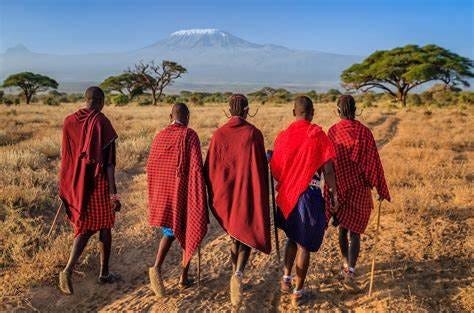In the heart of Africa, where communities live in rhythm with the land, ancient wisdom is emerging as a powerful force in the fight against climate change. Indigenous practices — honed over centuries — are proving invaluable for sustainable resource management and ecosystem resilience. As global temperatures rise and weather patterns grow increasingly erratic, these time-tested strategies are showing the world what true adaptation looks like.
“Indigenous knowledge systems, deeply rooted in the cultural and ecological contexts of African communities, offer practical and invaluable resources for climate adaptation strategies,” writes Trésor Daniel MEFIRE in his research, Harnessing Indigenous Knowledge for Climate Resilience in Africa.
Read also https://thenorthjournals.com/cameroons-disappearing-mangroves-natures-silent-crisis/
Guardians of the Land
Despite representing only 10% of the continent’s population, indigenous communities manage nearly half of Africa’s land area, serving as critical stewards of biodiversity and ecological balance (FAO, 2018). Their intimate understanding of local ecosystems often outperforms modern methods, especially in extreme weather events.
In Kenya, for example, pastoralist communities practicing traditional grazing techniques have seen livestock mortality drop by 20% during severe droughts. “These traditional practices led to a 20% reduction in livestock mortality during severe droughts,” MEFIRE notes, highlighting how indigenous strategies bolster food security and economic stability.
Innovations Rooted in Tradition
Across the continent, indigenous practices seamlessly intertwine innovation with tradition. In Ethiopia, pastoralists use “fog nets” to harvest moisture from the air, boosting water availability by up to 30% in arid regions. Meanwhile, in Mali, farmers integrate trees into their fields through agroforestry, increasing crop yields by 50% and enhancing soil fertility.
In Cameroon’s highlands, terraced farming techniques prevent soil erosion and optimize water use, increasing yields by 40% while reducing erosion by 60%. And in Senegal, traditional fishing practices — such as seasonal bans and selective gear — help sustain marine populations and stabilize community incomes.
Facing the Storm: Challenges to Indigenous Knowledge
Despite their success, indigenous communities face steep challenges. Climate change is disrupting the environmental cycles these practices rely on, and political exclusion further marginalizes their voices. A survey by the African Indigenous Peoples’ Organization revealed that over 65% of respondents felt excluded from national climate policies.
“Exclusion undermines the integration of their knowledge into broader adaptation strategies,” MEFIRE emphasizes, stressing the need for inclusive policymaking that values indigenous perspectives.
A Path Forward: Bridging Tradition and Science
The future of climate resilience in Africa lies in collaboration. Successful examples, like Namibia’s drought-resistant crop initiatives and Tanzania’s community-based forest management, show the power of blending traditional knowledge with scientific research.
“Governments and organizations must engage with indigenous communities as equal partners,” MEFIRE writes, advocating for participatory research, policy inclusion, and capacity-building programs to empower communities.
As the climate crisis intensifies, the world has much to learn from Africa’s indigenous peoples — not just about survival, but about living in harmony with nature. Their knowledge is not a relic of the past but a beacon of hope for a more resilient future.
For further details, the full research report by Trésor Daniel MEFIRE provides an in-depth analysis of the report.

1 Comment
Pingback: Africa's Climate Superhero: Peatlands Under Threat, Expert Warns - thenorthjournals.com